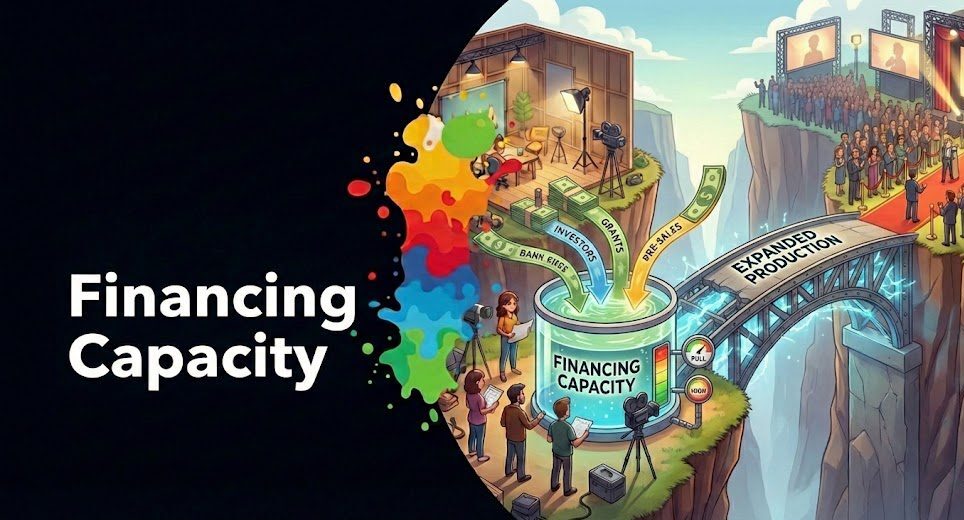To discover hidden localization partners in emerging markets, media executives must shift from relationship-based networking to automated supply chain mapping.
Emerging markets in the Middle East, Africa, and Southeast Asia are currently undergoing a structural metamorphosis, producing high-quality content that requires specialized cultural adaptation.
By leveraging vertical AI to track 1.6 million titles and 600,000 companies globally, studios can now identify verified vendors with local expertise 5x faster than through traditional trade shows or manual research.
The primary challenge in these regions is the data deficit. Without a centralized directory, high-potential studios remain invisible to global streamers. A strategic framework solves this by qualifying partners based on verified deal histories and localized reputation scores.
Your AI Assistant, Agent, and Analyst for the Business of Entertainment
VIQI AI helps you plan content acquisitions, raise production financing, and find and connect with the right partners worldwide.
- Find active co-producers and financiers for scripted projects
- Find equity and gap financing companies in North America
- Find top film financiers in Europe
- Find production houses that can co-produce or finance unscripted series
- I am looking for production partners for a YA drama set in Brazil
- I am looking for producers with proven track record in mid-budget features
- I am looking for Turkish distributors with successful international sales
- I am looking for OTT platforms actively acquiring finished series for the LATAM region
- I am seeking localization companies offer subtitling services in multiple Asian languages
- I am seeking partners in animation production for children's content
- I am seeking USA based post-production companies with sound facilities
- I am seeking VFX partners to composite background images and AI generated content
- Show me recent drama projects available for pre-buy
- Show me Japanese Anime Distributors
- Show me true-crime buyers from Asia
- Show me documentary pre-buyers
- List the top commissioners at the BBC
- List the post-production and VFX decision-makers at Netflix
- List the development leaders at Sony Pictures
- List the scripted programming heads at HBO
- Who is backing animation projects in Europe right now
- Who is Netflix’s top production partners for Sports Docs
- Who is Commissioning factual content in the NORDICS
- Who is acquiring unscripted formats for the North American market
Producers Seeking Financing & Partnerships?
Book Your Free Concierge Outreach Consultation
(To know more about Vitrina Concierge Outreach Solutions click here)
Strategic Roadmap
Executive Summary
-
Global Content Surge: Africa, the Middle East, and Asia are now primary engines for the global creative economy, demanding localized expertise in dialects like Swahili, Arabic, and Tagalog.
-
Data Visibility: Finding hidden partners requires a digital lighthouse to navigate the opaque networks of unmapped territories.
-
Verified Intelligence: Vertical AI maps millions of industry relationships to ensure that “hidden” partners are qualified and reliable.
The Emerging Market Paradox in Content Localization
The paradox of emerging markets lies in the gap between creative output and institutional visibility. While regions like the Middle East and Africa are seeing record content production volumes, the media supply chain in these areas remains highly fragmented. This fragmentation creates a data deficit that prevents global acquisition leads from discovering studios that possess deep linguistic and cultural nuance.
Localization in these markets is no longer just about subtitling. It involves navigating the complexities of Weaponized Distribution, where content is licensed simultaneously across multiple regional platforms. To compete, global players must find partners that can handle multi-dialect requirements without sacrificing technical streaming standards or financial sustainability.
Find hidden localization partners in Africa or MENA:
A Digital Lighthouse for Global Sourcing
In a sea of fragmented data, a centralized intelligence platform serves as a digital lighthouse for the entertainment industry. Finding hidden partners in growth markets requires more than just a directory. It requires a system that maps 30 million relationships to uncover which studios have actually delivered for global streamers.
By accessing verified profiles for over 140,000 companies, executives can qualify partners based on specialization, previous deals, and reputation scores. This reduces the risk associated with unproven vendors and allows for precision outreach to high-value targets. The result is a supply chain that is transparent, verifiable, and capable of scaling at the speed of global demand.
Industry Expert Perspective: Goldfinch’s Strategy for Emerging Economies
Learn how global creative economies in the Middle East, Africa, and Asia are being transformed through disciplined business models. This discussion explores the bridge between art and enterprise in growth markets.
Kirsty Bell, founder of Goldfinch, discusses bridging global creative economies through disciplined financial models. Discover how vertical series and brand integration are creating new revenue streams across Middle Eastern and African markets.
Localization Partners Expanding in Growth Markets
As global streamers push deeper into emerging territories, several established players are building regional hubs. These companies serve as primary conduits for localized content, leveraging local talent pools to ensure cultural authenticity.
1. Iyuno (Global Hubs)
Iyuno maintains a massive footprint across Southeast Asia and the Middle East, offering theatrical-grade dubbing and subtitling. Their regional facilities in places like Thailand and Malaysia are critical for high-volume content rollouts.
2. TransPerfect Media
TransPerfect has aggressively expanded its APAC and MENA operations, utilizing AI-assisted workflows to manage the cultural nuances of Arabic and various Asian dialects with localized precision.
3. VSI Group
VSI is known for its boutique attention to detail in emerging European and Middle Eastern markets, often serving as the primary partner for character-driven dubbing and high-end artistic transcreation.
Query Vertical AI for upcoming Southeast Asian projects:
How Vertical AI Compresses the Sourcing Cycle
Vertical AI, trained exclusively on proprietary entertainment data, is the key to identifying high-intent leads in growth markets. Unlike generic AI models, vertical AI understands the context of executive movements and regional financing trends. It maps millions of data points to reveal opportunities that would otherwise remain hidden in manual spreadsheets.
For studios looking to scale, this means moving from generic outreach to precision targeting. By tracking production volumes by region and genre, acquisition leads can identify high-growth hubs before they reach peak saturation. This proactive approach ensures that global players can secure the best talent and capacity in emerging markets well ahead of their competitors.
Moving Forward: Scaling Into Growth Hubs
Discovering hidden localization partners in emerging markets is no longer a manual challenge of networking. It is a data-driven strategy that leverages global supply chain intelligence to find verified, high-quality vendors.
Future Outlook: By 2027, emerging markets will account for over 40% of localized content demand for major streaming platforms. Those who adopt data-powered sourcing today will dominate the regional hubs of tomorrow.
Emerging Markets FAQ
Strategic answers for global sourcing leads.
Why is finding partners in emerging markets difficult?
What is a “Digital Lighthouse” in M&E?
How many companies are mapped in the global media supply chain?
Can Vertical AI find studios specializing in specific dialects?
What are the top emerging regions for content production today?
How can I verify a studio’s reputation in an unmapped territory?
What is Weaponized Distribution?
How fast can Vertical AI identify a shortlist of partners?
About the Author
Supply Chain Content Architect at Vitrina AI. Specialist in global media expansion and data-driven vendor discovery in emerging economies. Helping streamers bridge the gap between global creative hubs and verified local expertise. Connect with our growth team on Vitrina.



































